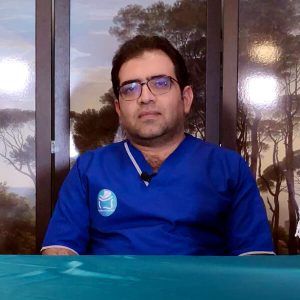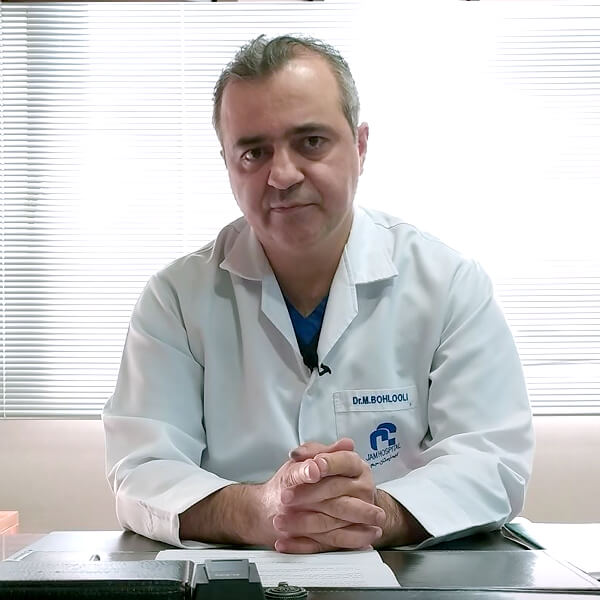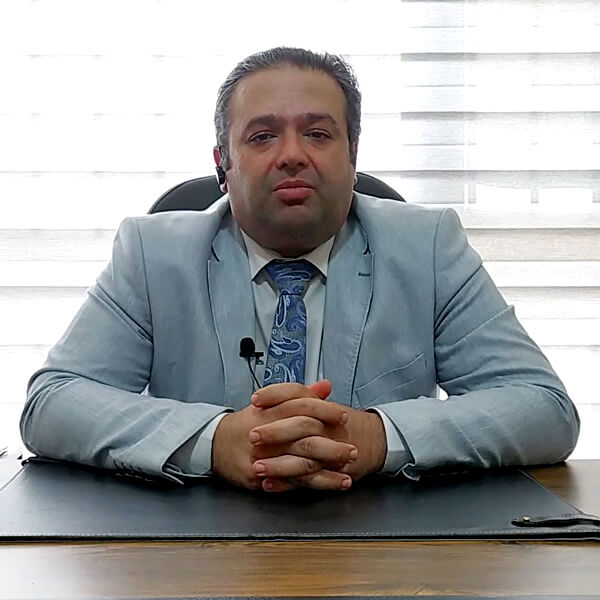Dr. Mehdi Alam Rajabi
Colon surgery fellowship (colorectal surgery) and general surgery specialist and professional doctor of medicine
Explanations of Dr. Mehdi Alam Rajabi, gastroenterologist, regarding the prevention of colon cancer.
The text of Dr. Alam Rajabi‘s speech
In the name of God, I am Dr. Mehdi Alam Rejbi, a member of the faculty of the Iran University of Medical Sciences, a gastrointestinal surgeon at Firoozgar and Jam Hospitals. I am at the service of friend87s at the Noor Cancer Charity Institute. People have asked me about colorectal cancers. And what should be done to avoid this disease?
The truth is that there is no clear and definitive answer to this question. What should we do to not get infected? I have many patients who have been vegetarian for a long time. Or they try hard to consume healthy foods as they say. They don’t consume takeout foods. Foods with fewer additives. They adhere to all these but still may develop colorectal cancer. Statistics show that some contaminations may increase the risk of colorectal cancer. For example, environmental pollution. Air pollution. Food contamination. And additives that we add to our foods under the title of new additives.
Western foods. Fast foods and processed foods that are now widely served and their consumption has increased significantly. Statistics show that they can increase the risk of colorectal cancer. This does not mean that if someone eats these foods, they will definitely get colorectal cancer. And if they don’t eat them at all, they will never get this cancer. Drug abuse certainly has an effect on the rate of colorectal cancers. Some foods rich in vitamin A or fresh foods such as fruits and vegetables can prevent colorectal cancer.
But what I think is important to talk about is what to do to detect colorectal cancer sooner? Because colorectal and rectal cancers are detectable and can be identified early. And if we do this and find cancer at early stages, we have much easier treatment and we can increase the lifespan of patients. In such cases, we must definitely categorize. If you live in a family where colorectal cancer has been present before, For example, in your family, several patients in two consecutive generations have had this disease. For example, father, uncle, aunt, and… And then the next generation. Cousins, brothers, sisters, and children. If we have three patients in these cases, we must definitely refer to a surgeon or gastroenterologist or geneticist or cancer specialist. Because these types of diseases and these types of families require a set of special screenings for them.
If there are patients who are suffering from specific diseases, such as cholesterol-related diseases and general digestive diseases, They should also be under the care of their gastroenterologist for a series of periodic screenings such as colonoscopy. It depends on how much involvement they have. Every seven years, eight years, or fifteen years is recommended for them. But for ordinary people who have normal lives and there has been no history of colorectal cancer in their family or if there has been, it was in the distant family and at an old age which is not very important,
Our recommendation is that from the age of fifty, colonoscopy should definitely be done under the supervision of a gastroenterologist, and after that, this procedure should be repeated every ten years. Sometimes there are symptoms that lead us to disease. For example, if someone has gastrointestinal bleeding, their stool may turn black. Or they may have a change in bowel habits for more than two to three weeks. The patient used to have normal bowel movements, but now they are experiencing constipation. Or vice versa. They always had constipation but now they have diarrhea, and this has been going on for two to three weeks. These are definitely important signs that should be followed up on.
If you feel that you have lost a significant amount of weight that cannot be justified This should also be followed up, and colonoscopy should be performed. The important point is that in tests conducted by individuals, if there is anemia and iron deficiency, it should definitely be addressed. And usually, it is not enough to just take iron supplements. It’s not normal to become anemic with iron deficiency out of nowhere. We definitely refer these individuals for colonoscopy and they undergo screening. This is important: generally, we recommend colonoscopy for all members of our society from the age of fifty. And then, this screening should be continued every ten years. So that we can have early detection of colorectal cancers.




